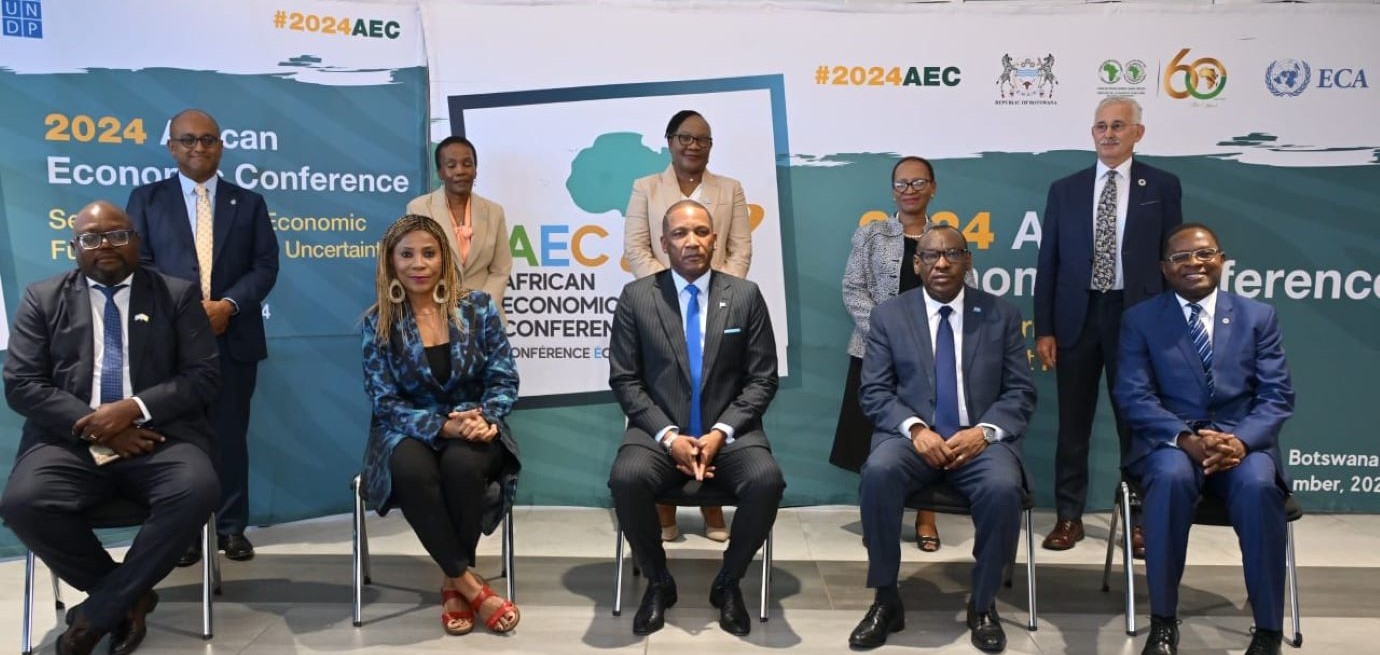(3 Minutes read)
The African Economic Conference(AEC), convened in Botswana’s capital from 23 to 25 November, spotlighted the transformative potential of the African Continental Free Trade Area (AfCFTA) in fostering intra-continental trade and economic integration.
President of Botswana, Duma Boko, underscored the significance of leveraging AfCFTA to reposition Africa as a global economic force, emphasising multilateral cooperation and regional integration as indispensable drivers of sustainable growth. Addressing a distinguished gathering of policymakers, academics, and development experts, Boko hailed the AfCFTA as a landmark initiative, describing it as the largest single free trade area in the world. He highlighted its capacity to reshape the continent’s economic landscape by spurring investment, creating jobs, and driving industrialisation. Boko also called for a holistic approach to regional integration, encompassing not only trade but also shared infrastructure, sustainable resource management, and mechanisms for conflict resolution.
Claver Gatete, Executive Secretary of the United Nations Economic Commission for Africa (ECA), echoed this sentiment, describing the AfCFTA as the “crown jewel” of Africa’s economic integration efforts. Gatete called for an acceleration of its implementation, pointing to the necessity of removing barriers to the free movement of goods, services, and people. Citing Botswana’s visa-free policies alongside those of Rwanda and Ghana, he argued that such measures exemplify practical steps toward enhanced intra-African collaboration.
The three-day conference, co-hosted by the African Development Bank (AfDB), the ECA, and the United Nations Development Programme (UNDP), centred on the theme, Securing Africa’s Economic Future Amidst Rising Uncertainty. Discussions encompassed strategies to mitigate global economic volatility and promote sustainable development across the continent.
Experts present highlighted the importance of ensuring that AfCFTA’s framework is operationalised efficiently. Key recommendations included harmonising regional trade policies, investing in cross-border infrastructure, and fostering public-private partnerships to unlock the full potential of the free trade area.
As the conference concluded, delegates called for an actionable roadmap to accelerate AfCFTA’s implementation, emphasising that its success will hinge on political will, institutional reforms, and sustained international collaboration.
Read Also:
https://trendsnafrica.com/african-leaders-gather-at-morocco-for-afcfta-business-forum/
The AfCFTA, which became operational in January 2021, aims to create a single market for goods and services across 54 African nations, encompassing a population of over 1.3 billion and a combined GDP of approximately USD 3.4 trillion. While its potential benefits have been widely lauded, challenges remain, particularly regarding logistical bottlenecks, disparities in industrial capacity, and the need for robust dispute-resolution mechanisms.





